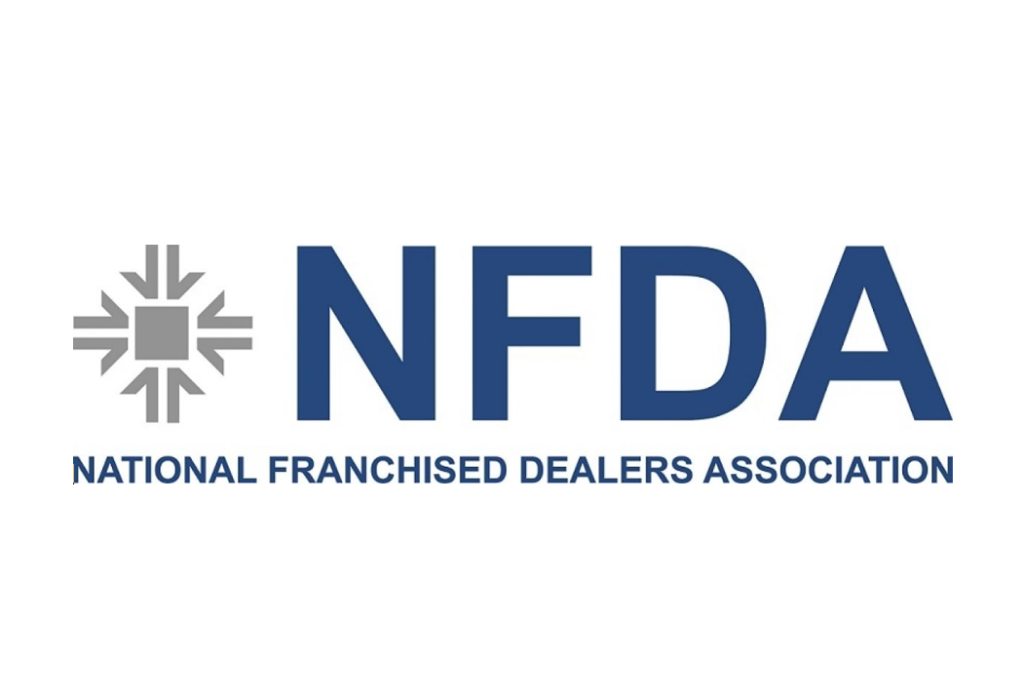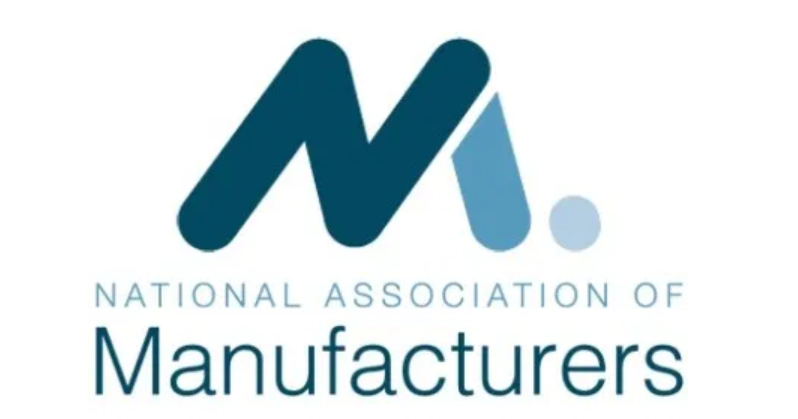National Franchised Dealers Association
Category: Trade Association
The National Franchised Dealers Association represents franchised car and commercial vehicle retailers in the UK, branding itself as the “voice of automotive retailers”.
The NFDA has made comments in support of action to improve air quality and called for more government assistance to accelerate the adoption of electric vehicles. However, it has also strongly criticised Clean Air Zones, particularly regarding their financial impact on the haulage sector, and defended modern diesel vehicles as being significantly cleaner than older models.
The NFDA is housed under the Retail Motor Industry Federation, an umbrella group composed of eight automotive retail associations, including the Independent Garage Association, the Petrol Retailers Association and the National Motorcycle Dealers Association. Sue Robinson is a Director of both the RMIF and the NFDA.
The NFDA also belongs to the Europe-wide Alliance of European Car Dealers and Repairers, which launched in 2019 and exists to promote the “interests of European car dealers and repairers at European level”.
The NFDA has an active public affairs team that lobbies policymakers on behalf of its members to “ensure their voice is heard and support them with a number of issues that impact automotive retail businesses on a day to day basis”.
It runs initiatives including: Drive My Career, which promotes careers in automotive retail among young people, and Electric Vehicle Approved, which provides accreditation to certified EV retailers.
Funding
The NFDA is currently dormant according to Companies House. The Retail Motor Industry Federation, which is based at the same London address and of which the NFDA is a member, had turnover of £27.2m and net assets of £27m in 2018, according to its annual report.
Air Pollution Lobbying
Responding to the March 2020 Budget, the NFDA welcomed plans for a “call for evidence” on how to use vehicle excise duty to better incentivise the take-up of low emission vehicles, for which it had lobbied.
In 2018, it highlighted official figures showing a long-term decline in air pollutants, with its Director saying it was “positive to see that total emissions from motor vehicles declined by 12% from 2012 to 2016”. She said the data demonstrated that new cars “are contributing significantly to reducing NOx emission levels”. She called for “well-targeted measures” to be implemented to “ensure that motorists continue to replace their old cars with new, cleaner ones”.
The same year it called on the government to do more to tackle “cheat devices” used to override lorries’ emissions monitoring systems.
Following the publication of the government’s air quality plan in 2017, the NFDA said it was “pleased to see that the Government is determined to be at the forefront of vehicle innovation by making motoring cleaner”.
However, the NFDA has also argued that the “largest gains in air quality will come by encouraging the uptake of the latest low emission vehicles of all fuel types”, including petrol and diesel vehicles.
It said government policy should consider the “impact of all types of air pollution, expanding beyond private cars, motorcycles and vans” to include “other forms of transport, industry and buildings”.
The NFDA has also opposed rises in fuel duty and welcomed news that it would be frozen for the tenth consecutive year following the 2020 Budget.
It told DeSmog it supported a “well-targeted, coordinated approach aimed at reducing emissions and promoting the uptake of low and zero emission vehicles” but that this should include the “latest generation internal combustion engine vehicles” where appropriate.
It also said it was working across the industry and with government to “encourage as many motorists as possible to switch to environmentally friendly cars”.
Freight Industry Coalition
The NFDA is part of a coalition of trade bodies representing the road freight sector that has strongly criticised charging Clean Air Zones and wants to see non-charging alternatives implemented instead. Other members include the Road Haulage Association, the Freight Transport Association and the British Vehicle Rental and Leasing Association.
In 2018, the coalition published a plan entitled “The Way Forward” setting out alternative measures to CAZs, such as smarter traffic management. It argued CAZs were unfairly targeting hauliers and met with Transport Minister Jesse Norman and Environment Minister Therese Coffey to discuss the recommendations.
The coalition has also published a “factsheet” arguing that there are currently no viable alternatives to diesel for HGVs and that small and medium sized businesses would be “worst affected” by CAZs. It also criticised the charging system for not distinguishing between different types of older diesel lorries.
The factsheet said that lorries were being “asked to bear the greatest burden in reducing emissions”, despite not being the only source of NOx, and that the charges would “result in a tax on freight, a tax on business and higher prices for everyone”.
Diesel and Petrol Vehicles
Responding to the government’s “Road to Zero” strategy in 2018, the NFDA said it welcomed the government’s “continued commitment to support the uptake of electric vehicles” but stated that “conventional engines will continue to play an important part in the years to come”.
It said it was positive that the government had stated that “‘cleaner diesel cars and vans can play an important part in reducing CO2 emissions’ during the transition to zero emissions”. It said it supported reductions in air pollution from diesel vehicles but that it was “confident” the latest standards would help.
The NFDA’s Director also said she was “confident that the new, stricter standards” on diesel vehicles would “prove crucial” in reducing emissions.
Research on cars’ “real-world” emissions published by the International Council on Clean Transportation the same year found that even the latest Euro 6 diesel vehicles had significantly higher NOx emissions than petrol equivalents and exceeded emissions limits.
In 2017, the NFDA produced a leaflet on diesel to help its members “educate the public”, arguing that consumers needed “accurate and honest information to select the car that best suits their needs”.
The leaflet highlighted improvements in diesel engines and said they accounted for “only 11% of NOx emissions” in Greater London, claiming that cars were “not the biggest contributors to air pollution”.
It argued alternative measures should be implemented first before introducing Clean Air Zones and recommended urban drivers buy petrol vehicles and long-distance drivers buy diesel.
Official figures show diesel cars are the largest single contributor in London to roadside NOx concentrations, where most people come into contact with poor air quality, along with buses.
In response to the government’s air quality plan in June 2017, the NFDA’s Director Sue Robinson called on the government to adopt a “wider approach which does not focus solely on diesel to quickly and efficiently tackle air quality issues”. She said that the public needed to understand that the latest Euro 6 diesel vehicles are “cleaner and emit much lower NOx emissions than older diesel models”.
The NFDA has also argued that the latest diesel-powered HGVs have the “cleanest engines ever” and “vastly reduced real-world NOx emissions”.
In response to a proposed ban on new diesel and petrol vehicles by 2040, announced in 2017, the NFDA said it was “concerned that the total focus may be heavily placed on the automotive industry” and argued that owners of the latest Euro 6 diesel models “should not be penalised”. It also described a proposed diesel scrappage scheme as an “expensive blunt instrument” that failed to target the oldest, most polluting vehicles, having previously said that a scrappage scheme “would be welcomed by the NFDA as it would benefit the UK economy, job market and consumers”.
It has, however, praised Ford for launching a scrappage scheme for older, pre-Euro 5 standard petrol and diesel vehicles.
Electric Vehicles
The NFDA set up a dedicated EV working group in 2019 to “discuss challenges and opportunities associated with the development of electric vehicles, coordinate industry views and, as a result, tackle issues affecting the growth of the EV sector”.
It welcomed the government doubling investment in residential EV charging infrastructure in January 2020, pledging to “continue to work closely with the Government and the relevant stakeholders to sustain the growth of the EV sector”.
Following the Budget in March 2020, it said it was “extremely encouraging” that the government would be investing more than £500 million in new rapid charging infrastructure.
Prior to the Budget, the NFDA had called for the plug-in grant for EV and hybrid vehicle buyers to be extended “to ensure a consistent and successful transition to electric vehicles”.
Hybrids have been criticised by environmental campaigners because their emissions savings can be quickly wiped out by driving in petrol or diesel mode, while “extended-range” electric vehicles can arguably offer the same benefits in terms of mileage.
Key Arguments in Order of Prominence
- The latest diesel models are significantly cleaner so diesel should not be exclusively targeted
- Diesel cars only produce 11% of NOx in London
- A long-term decline in air pollution from vehicles is already taking place, thanks to modern engines and particulate filters
- Cars are being unfairly targeted when there are many other sources of pollution
- HGVs are being unfairly targeted when there are many other sources of pollution
- Small businesses will be worst hit by charges on HGVs in CAZs
- CAZs should better distinguish between older and newer diesel HGVs
- Encouraging uptake of the latest vehicles, regardless of fuel type, is the most effective way to reduce emissions
- Alternatives to Clean Air Zones should be implemented first, such as better traffic management
- Diesel vehicles remain the best option for many motorists and emit less CO2 than petrol equivalents
- Diesel drivers are being penalised after being encouraged to buy their vehicles by previous governments
Areas Active
Bristol: the NFDA responded to the council’s plans to ban diesel cars from the city centre during the day by saying that it was “important to differentiate between old and new diesel”. It argued that the latest diesel models “represent the most efficient vehicles for many motorists and emit less CO2 than their petrol equivalents”.
It said diesel drivers should not be “penalised” after they had been encouraged to buy their cars by previous governments.
It called for a diesel scrappage scheme and noted the efforts retailers were making to encourage the uptake of EVs.
London: the NFDA said it supported the creation of an Ultra Low Emission Zone but made a number of criticisms in response to a consultation on the scheme in 2015. The NFDA and the BVRLA supported postponing the introduction date for HGVs beyond 2020, arguing that cleaner technology for this vehicle type is at an earlier stage than for cars. The two organisations also backed a 12-month grace period where warning notices would be issued instead of charges.
The NFDA, along with motorcycle groups and the Campaign for Better Transport, called for lower charges for motorcyclists as a result of shorter journey times. Transport for London rejected this recommendation, noting that faster journeys would not necessarily lead to lower emissions, as well as motorcyclists’ tendency to accelerate and decelerate regularly, increasing emissions.
The NFDA, BVRLA and FTA all called for discounts for businesses located within the zone, similar to the scheme for residents.
Key Actions
July 2018
The freight industry coalition of which the NFDA is a member published a plan entitled “The Way Forward” setting out alternative measures to Clean Air Zones, such as smarter traffic management.
It argued CAZs were unfairly targeting lorries and met with Transport Minister Jesse Norman and Environment Minister Therese Coffey to discuss the recommendations.
Associated Politicians
The NFDA runs a Parliamentary Engagement Programme to provide MPs with an opportunity to visit member dealerships in an effort to “raise awareness of the automotive retail industry including dealer investment, regulatory issues, employment and career opportunities”, according to its 2018 annual report.
Conservative MPs Mark Garnier and Tom Tugendhat are among those who have participated in the programme.
Related Organisations
- Freight Transport Association
- Road Haulage Association
- British Vehicle Rental and Leasing Association
Social Media
- RMI_NFDA on Twitter.






